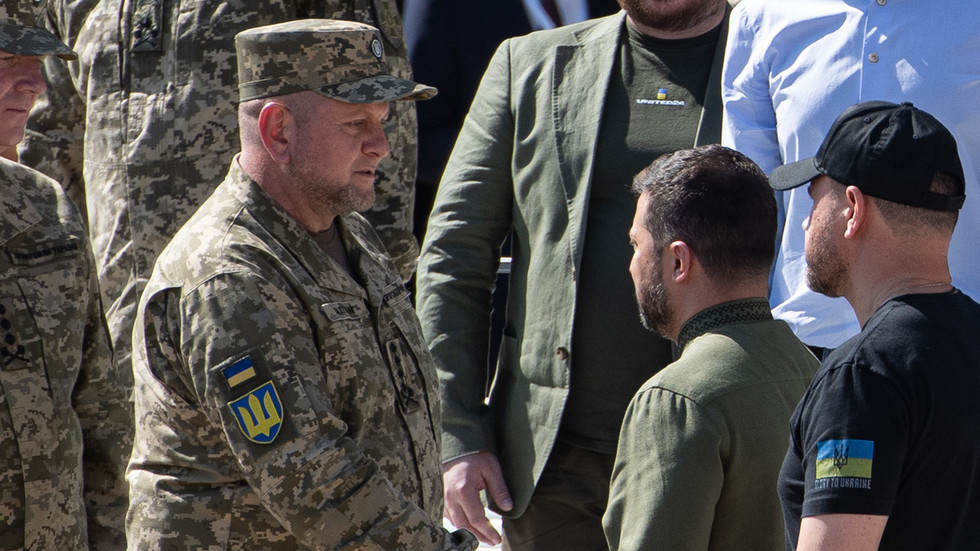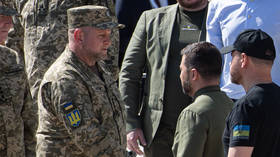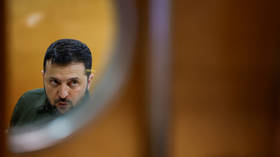
The paper cited the presidential office’s recent scolding of top military commander Valery Zaluzhny for saying Kiev wasn’t winning

FILE PHOTO. Ukrainian President Volodymyr Zelensky shakes hands with Commander-in-Chief of the Armed Forces of Ukraine Valerii Zaluzhny during the official celebration of Ukrainian Independence Day in Kyiv, Ukraine. © Alexey Furman/Getty Images
There are growing fissures within the Ukrainian leadership, the New York Times has claimed, citing recent public criticism of the country’s top military commander, Valery Zaluzhny, by President Vladimir Zelensky’s administration. The general claimed last week that the conflict with Russia had reached a stalemate, and that neither side was likely to make significant gains anytime soon.
In its article on Saturday, the NYT alleged that the public rebuke “signaled an emerging rift between the military and civilian leadership at an already challenging time for Ukraine.” According to the newspaper, rumors about tensions between Zelensky and Zaluzhny have been circulating in Ukraine for over a year now. However, the scolding on Saturday that presidential office deputy head Igor Zhovkva levelled at the commander over his recent piece for The Economist may have been the first time this rift had been exposed, the NYT suggested.
Zelensky’s administration publicly criticized Zaluzhny after he warned in his article for the British magazine that the belligerents were locked in a “stalemate,” comparing the situation to World War I.

The general went on to predict that the Ukrainian military was unlikely to pull off a “deep and beautiful breakthrough,” unless its backers provide it with more advanced weaponry.
Commenting on Zaluzhny’s piece, Zhovkva said that the “last thing I would do is comment for the press… about what is happening at the front [and] what could happen at the front.” The official went on to suggest that such revelations play into Russia’s hands.
He claimed to have received phone calls from unnamed Western officials who were in a panic and inquired if Kiev was “really at a dead end.”
Zelensky, too, made it clear during a press conference on Saturday that he does not see the front as being at a stalemate.
The public exchange came amid heavy casualties and modest gains that the Ukrainian counteroffensive, which began in early June, has yielded so far. According to Russian Defense Minister Sergey Shoigu’s estimates, Kiev has lost as many as 90,000 military personnel since then.
The Ukrainian leadership has acknowledged that the operation is not proceeding as smoothly as planned, a circumstance that Zelensky has suggested is due to inadequate aid provided by the West.




